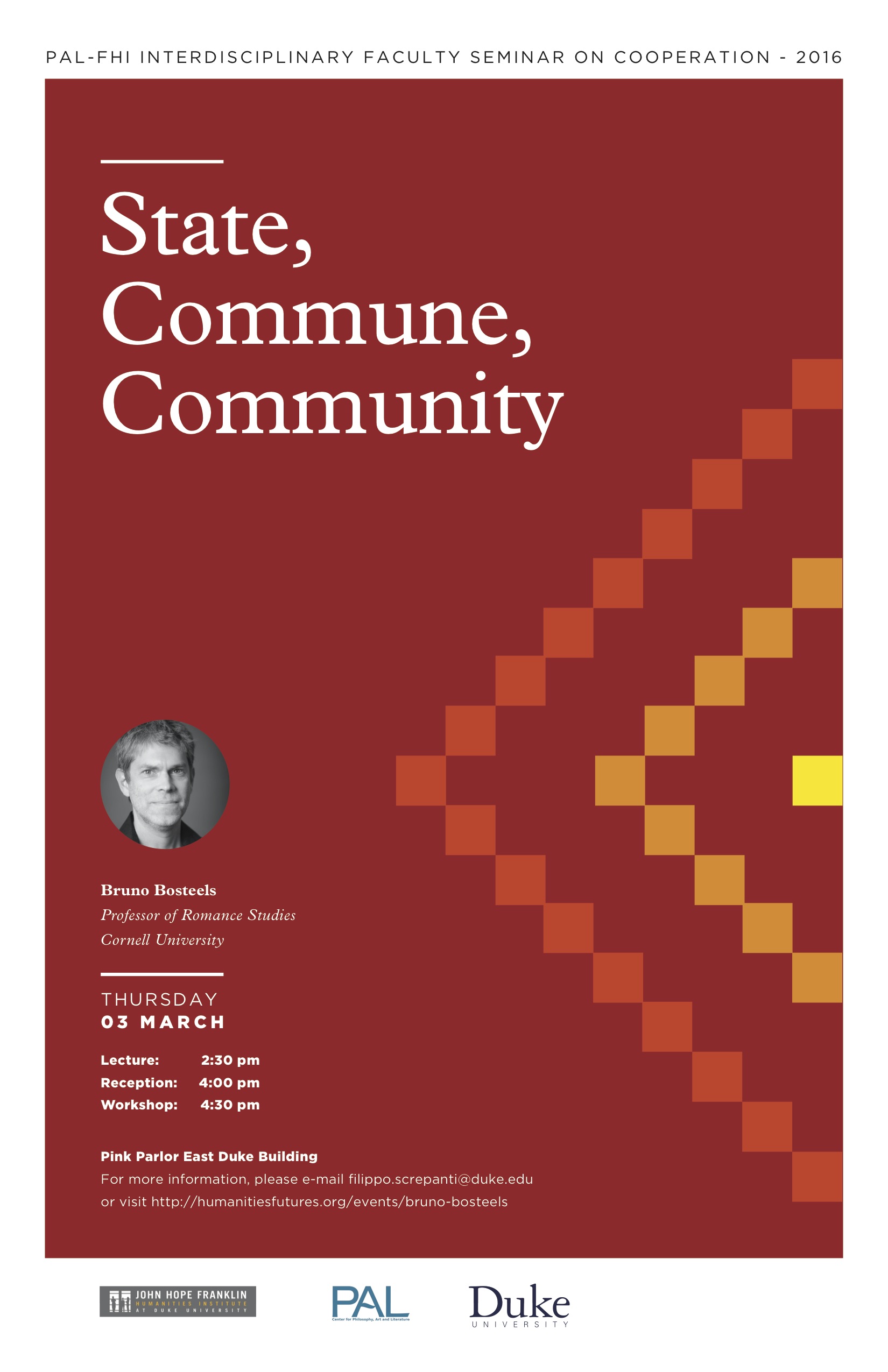Please join the PAL-FHI Seminar in Cooperation for this public event.
If there is one dominant problematic that has emerged out of these past decades of struggle in Latin America, it is without a doubt the resurgence of the very question about the role of the state and its confrontation with various non-state or anti-state forms of politics, both violent and pacific—from new social movements to human rights organizations, and from paramilitary groups to anarcho-communist collectives. This problematic far exceeds the terms of the classical opposition between state and civil society—whether in its Hegelian formulation (for whom the state is the supreme embodiment of the ethical life that alone is capable of mediating the selfish ends and capricious interests of private persons) or following its inversion in the early Marx (for whom the state is nothing but the condensation of class struggles at the level of civil society, understood in its eighteenth-century sense as the realm of political economy). Instead, starting out from the experience of the Oaxaca Commune, Bruno Bosteels will address the current situation in Latin America in general and in Mexico, in particular, in light of the tensions between the state, the commune, and community.
Before joining the faculty at Cornell, Bruno Bosteels held positions as an assistant professor at Harvard University and at Columbia University. He is the author of Alain Badiou, une trajectoire polémique (La Fabrique, 2009); Badiou and Politics (Duke University Press, 2011); and The Actuality of Communism (Verso, 2011). His latest book, Philosophies of Defeat: The Jargon of Finitude, is due to come out in September 2016. He is the author of dozens of articles on modern Latin American literature and culture, and on contemporary European philosophy and political theory. His research interests further include the crossovers between art, literature, theory and cartography; the radical movements of the 1960s and 1970s; decadence, dandyism and anarchy at the turn between the 19th and 20th centuries; cultural studies and critical theory; and the reception of Marx and Freud in Latin America.







